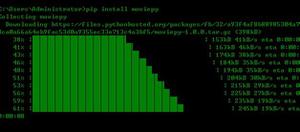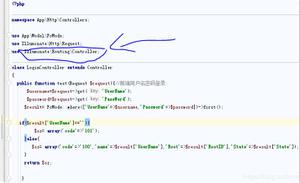python获取一组汉字拼音首字母的方法
本文实例讲述了python获取一组汉字拼音首字母的方法。分享给大家供大家参考。具体实现方法如下:
#!/usr/bin/env python
# -*- coding: utf-8 -*-
def multi_get_letter(str_input):
if isinstance(str_input, unicode):
unicode_str = str_input
else:
try:
unicode_str = str_input.decode('utf8')
except:
try:
unicode_str = str_input.decode('gbk')
except:
print 'unknown coding'
return
return_list = []
for one_unicode in unicode_str:
return_list.append(single_get_first(one_unicode))
return return_list
def single_get_first(unicode1):
str1 = unicode1.encode('gbk')
try:
ord(str1)
return str1
except:
asc = ord(str1[0]) * 256 + ord(str1[1]) - 65536
if asc >= -20319 and asc <= -20284:
return 'a'
if asc >= -20283 and asc <= -19776:
return 'b'
if asc >= -19775 and asc <= -19219:
return 'c'
if asc >= -19218 and asc <= -18711:
return 'd'
if asc >= -18710 and asc <= -18527:
return 'e'
if asc >= -18526 and asc <= -18240:
return 'f'
if asc >= -18239 and asc <= -17923:
return 'g'
if asc >= -17922 and asc <= -17418:
return 'h'
if asc >= -17417 and asc <= -16475:
return 'j'
if asc >= -16474 and asc <= -16213:
return 'k'
if asc >= -16212 and asc <= -15641:
return 'l'
if asc >= -15640 and asc <= -15166:
return 'm'
if asc >= -15165 and asc <= -14923:
return 'n'
if asc >= -14922 and asc <= -14915:
return 'o'
if asc >= -14914 and asc <= -14631:
return 'p'
if asc >= -14630 and asc <= -14150:
return 'q'
if asc >= -14149 and asc <= -14091:
return 'r'
if asc >= -14090 and asc <= -13119:
return 's'
if asc >= -13118 and asc <= -12839:
return 't'
if asc >= -12838 and asc <= -12557:
return 'w'
if asc >= -12556 and asc <= -11848:
return 'x'
if asc >= -11847 and asc <= -11056:
return 'y'
if asc >= -11055 and asc <= -10247:
return 'z'
return ''
def main(str_input):
a = multi_get_letter(str_input)
b = ''
for i in a:
b= b+i
print b
if __name__ == "__main__":
str_input=u'欢迎你'
main(str_input)
希望本文所述对大家的Python程序设计有所帮助。
以上是 python获取一组汉字拼音首字母的方法 的全部内容, 来源链接: utcz.com/z/315173.html







